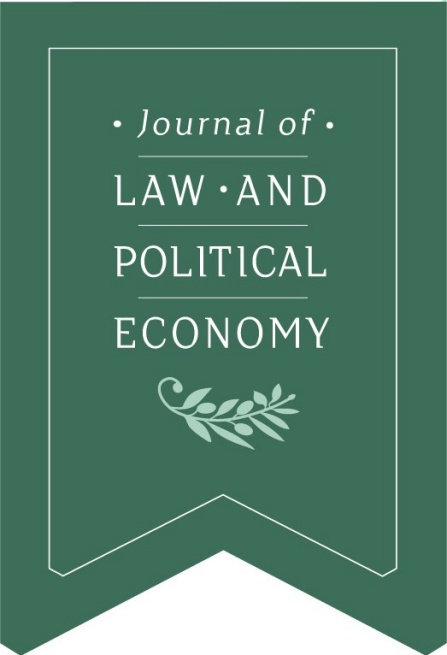The goal of antimonopoly policy is not simply to help farmers. Antimonopoly law seeks to redistribute decision making power systematically down the supply chain. Expanding workers’ rights and enacting antimonopoly laws must go together. Establishing more rights for labor without also restructuring this system is unlikely to do more than make marginal improvements
The reinterpretation of antitrust in terms of "consumer welfare" has not resulted in bountiful consumer welfare, but oligarchy unleashed. But, as I wrote in the Journal of Law and Political Economy, antitrust can be a force for fairness and democracy again. A reimagined antitrust law that restricts consolidation of business assets and permits certain forms of coordination among small actors would limit domination and disperse power.
Sandeep Vaheesan interviews Frank Pasquale about his forthcoming book, New Laws of Robotics: Defending Human Expertise in the Age of AI.
Taking up Anne Alstott & Ganesh Sitaraman’s arguments in favor of the public option, this post makes a case for universal labor and employment rights.
The Supreme Court has waged a multi-decade war on private rights of action. It has subverted the rights of consumers, workers, small businesses, and others to hold corporations accountable for wrongdoing through lawsuits. The Federal Arbitration Act (FAA) has been a preferred tool of the Court. Since the 1980s, it has reinvented this modest statute,…
Since the 1970s, Congress and federal agencies have replaced regulator-established rates with market-derived pricing in many sectors of the U.S. economy. Electricity and natural gas are two such industries. Congress and the Federal Energy Regulatory Commission (FERC) have abolished regulated rates and instituted market-based pricing in a part of the electricity and gas supply chains.…





